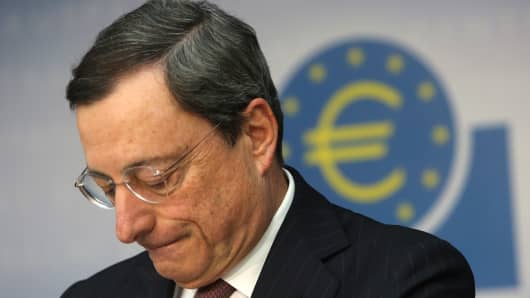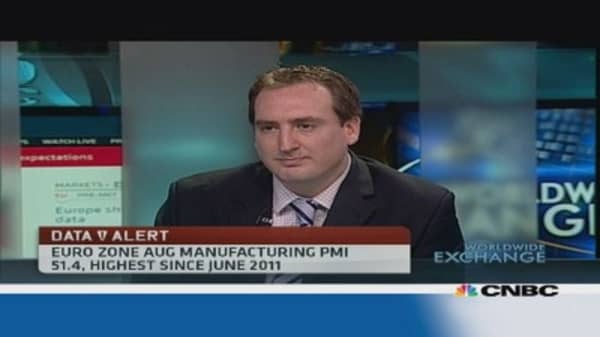Southern comfort
Euro zone businesses had their best month in over two years in August as orders increased for the first time since mid-2011, a survey showed on Wednesday, suggesting the region's economy will grow slightly this quarter after 0.3 percent growth in the second.
The Governing Council will also welcome the fact that interest rates banks charge companies in debt-ridden southern Europe are falling more than in core euro zone nations, even as the gap between them remains wide.
Widely varying borrowing costs across the 17-country bloc have developed into a major headache for the central bank, which charges banks a flat 0.5 percent interest rate for loans.
(Read more: Euro zone recession rending, but what has changed?)
In July, the interest small businesses have to pay fell most in the debt-ridden countries and the central bank's measure of country-by-country variation fell to its lowest level since August last year.
However, the amount of money euro zone firms borrowed fell at its fastest pace since the inception of the euro in July.
Weak lending, combined with rising market rates, will keep the ECB from putting a much happier face on the growth outlook in its latest set of staff economic projections to be published on Thursday, and Draghi is expected to emphasize that the growth outlook is still subject to downward risks.
(Read more: Seeking European signs of sturdier global rebound)
"Draghi will be very cautious on the growth outlook, repeat what they have said before, that they are on track with a very gradual recovery," Societe Generale economist Anatoli Annenkov said.
Analysts also expect the inflation outlook to remain close to current levels, showing no price pressures as it is expected to remain below the ECB's target of just below 2 percent.
"We are not expecting much change in the inflation outlook, next year's inflation estimate should be 1.3 or 1.4 percent," SocGen's Annenkov said.





